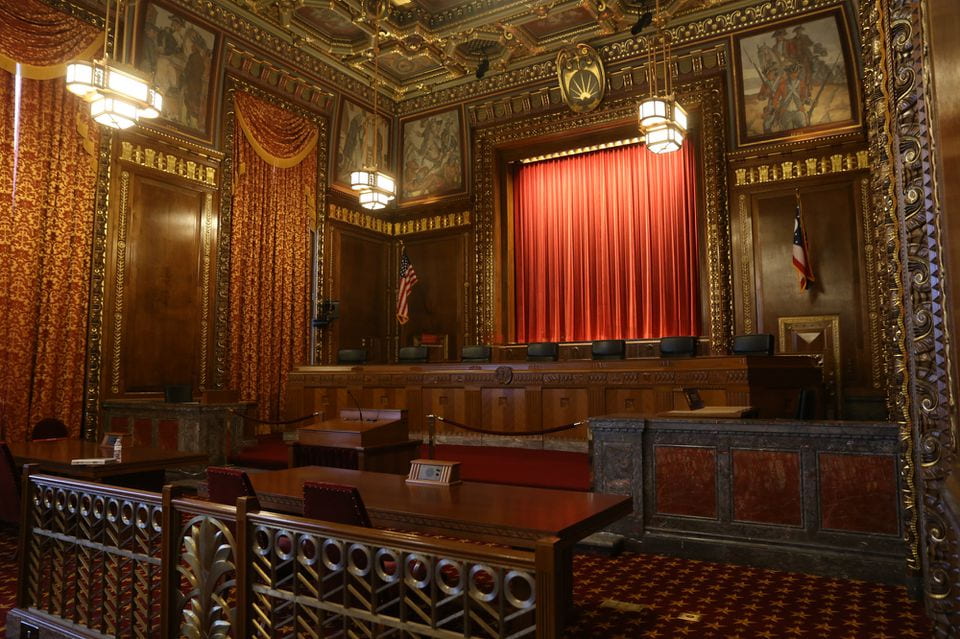
The Ohio Supreme Court chambers in downtown Columbus. Credit: David Petkiewicz (cleveland.com/TNS)
The Supreme Court of Ohio voted to uphold the Reagan Tokes Law — named after an Ohio State student who was murdered in 2017 — as constitutional in a 5-2 vote July 26.
The law took effect in 2019 and allows the sentencing judge to establish a “minimum term” from which the prisoner is presumed to be released and a “maximum term,” which is an additional 50 percent of the minimum term.
Applying to only first- and second-degree felonies, the law can be used by the Ohio Department of Rehabilitation and Correction to hold people in prison for longer than the minimum term due to bad behavior and infractions without the involvement of the sentencing judge, according to the Supreme Court of Ohio.
Lisa McCrary-Tokes, Tokes’ mother, said the law is designed to keep those who have not exhibited reform while in prison from being released back into society.
“There is reform and conduct that should occur while you’re incarcerated so that you actually can attempt to come out and now be a properly behaving member of society and not going around and doing harm to others,” McCrary-Tokes said. “If you can’t do that, then guess what, you don’t belong getting released, and I guess you need to stay in jail longer then, and that’s exactly what this bill was designed to do.”
Reagan Tokes was abducted, raped and murdered on Feb. 8, 2017, by Brian Golsby, who was found guilty a year later. Golsby had just been released after serving six years on a rape conviction due to his definite sentence and had amassed over 50 institutional infractions in five different prisons throughout his incarceration, according to the Supreme Court of Ohio.
“The death of Reagan Tokes was a tragedy for her family, her friends and the university community,” university spokesperson Chris Booker said in an email. “We continue to honor Reagan’s memory with a monument and magnolia tree at Mirror Lake.”
The Reagan Tokes Law was challenged by two Ohio inmates who were sentenced under the new law in 2019, according to the ruling. They claimed the law violated the separation of powers between law enforcement and the sentencing judge, the offender’s right to a jury trial and procedural due process, according to the Supreme Court of Ohio ruling.
The recent ruling denied these claims and stated there is no breach of power by the Department of Rehabilitation and Correction — which would set the length of an inmate’s sentence in a certain range — as it does not interfere with the trial court’s decision when sentencing the offender.
McCrary-Tokes said she does not believe the law is unconstitutional or a risk of abuse of power because it can also reward those who exhibit proper reform. According to the Supreme Court of Ohio, the Reagan Tokes Law allows the minimum term to be reduced by five to 15 percent with the approval of the sentencing court to reward exceptional conduct or adjustment to incarceration.
“There are two kinds of consequences in life — good and bad — and everybody has free will to determine which kind of consequence they want coming down their pipeline,” McCrary-Tokes said. “This bill is designed to guide people to do the right thing and become a better person, and not choose poorly, and there is a positive consequence for that.”
McCrary-Tokes said she is grateful the court made the right decision, and she said she hopes this law can be used to prevent further tragedies similar to Reagan’s.
“If one person has come out of harm’s way or not been harmed because of anything that we’ve done, then that is a good thing,” McCrary-Tokes said.


